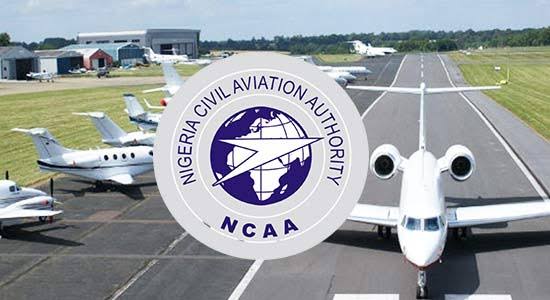
The aviation crisis is a call for reform and accountability
The aviation sector in Nigeria is at a crossroads. The recent revelation by the Nigerian Civil Aviation Authority (NCAA) that domestic airlines recorded a staggering 5,225 flight delays and 190 cancellations in just two months paints.
These numbers are not just statistics; they represent thousands of frustrated passengers, missed opportunities, and a significant economic toll on the nation.
With nearly half of the 10,804 flights operated between September and October 2024 disrupted, the scale of the problem is undeniable.
This is no longer a mere inconvenience but a systemic issue that demands urgent attention and reform.
In September, there were 2,434 delays out of 5,291 flights, and October fared no better, with 2,791 delays out of 5,513 flights.
This persistent pattern suggests that the challenges facing the Nigerian aviation sector are not isolated incidents, but symptoms of deeper, systemic problems.
Such delays and cancellations disrupt more than just travel schedules; they affect the lives of countless individuals, leading to lost business opportunities, strained relationships, and a sense of helplessness among passengers.
It is a fact that Nigerian airlines face numerous challenges, ranging from inadequate infrastructure to operational constraints.
The industry must not settle for mediocrity. While it is true that some delays may be beyond the control of the airlines, it is essential that these challenges drive innovation and operational improvements rather than a sense of resignation.
The notion of “force majeure” or external factors must not be used as a blanket excuse for inefficiency.
The NCAA has made strides in addressing the issue, including the threat of sanctions for non-compliance with operational standards.
However, this approach is merely addressing the symptoms of the problem, not the root causes. Threatening sanctions is necessary, but it is not sufficient.
It must be coupled with concrete actions and reforms to tackle the underlying inefficiencies in the sector.
The NCAA must move beyond warnings and take decisive action to enforce regulations that ensure airlines maintain a high standard of service.
While the directive for airlines to trim their schedules and improve communication with passengers is a step in the right direction, it is only part of a broader solution.
The NCAA’s new Consumer Protection Regulations of 2023 must be enforced rigorously. Passengers should not have to wait for weeks to receive compensation when they are subjected to flight disruptions.
The timeline for compensation should be sacrosanct, and alternative travel arrangements must be provided promptly.
Recall, that o e of the key issues highlighted by this crisis is the need for airlines to provide better communication and customer service. Passengers should not be left stranded for hours without adequate information or compensation.
The experience of waiting at an airport with no updates, no assistance, and no clarity about the status of a flight is unacceptable.
Airlines must invest in real-time communication systems that keep passengers informed about delays and cancellations, and ensure that they are treated with respect and empathy during these stressful situations.
Furthermore, airlines must be required to maintain realistic flight schedules that take into account operational challenges such as weather conditions and air traffic congestion. Flight schedules must not be overambitious, and there must be a transparent system for tracking and reporting delays and cancellations.
Compensation mechanisms also need to be streamlined. The current bureaucratic processes for securing compensation are cumbersome and inefficient. Airlines must implement automated systems that allow passengers to receive compensation quickly and without unnecessary delays.
Also, airports must invest in facilities that enhance passenger comfort during unavoidable delays. This includes comfortable waiting areas, accessible amenities, and better food and beverage options.
The Federal Airports Authority of Nigeria (FAAN) has shown that solutions are possible when there is institutional will. Initiatives such as the extension of operations at sunset airports in Owerri and Enugu are commendable, but they are only a small part of the solution.
This overhaul should include modernising air traffic management systems, improving airport infrastructure, and enhancing operational efficiency across all aspects of aviation services. The weather is often cited as a major reason for delays in Nigeria, but this cannot be used as a perpetual excuse for poor service delivery.
Airlines in other countries operating in similar weather conditions have demonstrated that it is possible to maintain reliable air services even under challenging conditions. Nigerian airlines must learn from these international best practices and adapt them to the local context.
Moving forward, it is important that the aviation sector prioritise the protection of passengers while fostering a culture of accountability. Passengers have a right to expect timely and reliable air services, and it is the responsibility of airlines to deliver on these expectations.
However, passengers must also understand the complexities of aviation operations and recognise that delays may sometimes be unavoidable. Violence and aggression toward airline staff in response to service failures is never acceptable.
At the same time, airlines must work harder to meet the expectations of their customers through transparent communication, efficient service delivery, and timely compensation.
Also, there must be a closer examination of the structure of the Nigerian aviation industry. Are there too many airlines competing on routes that cannot sustain them? Should there be minimum operational requirements for airlines beyond the current technical safety standards? These are crucial questions that need to be addressed as part of a broader industry review.
As Nigeria’s aviation industry faces another challenging year in 2025, the time has come for a fundamental transformation. We cannot continue with the status quo, where delays and cancellations are the norm rather than the exception.
The NCAA, as the regulator, must take the lead in this transformation by enforcing regulations that promote accountability, transparency, and excellence.
At the same time, airlines must embrace innovation, improve customer service, and invest in systems that ensure reliable and efficient operations. This we can say is the only way to restore confidence in the Nigerian aviation industry and provide passengers with the reliable service they deserve.




